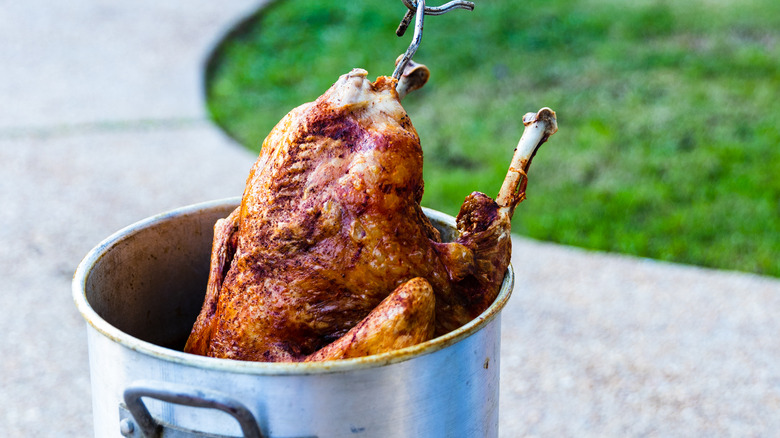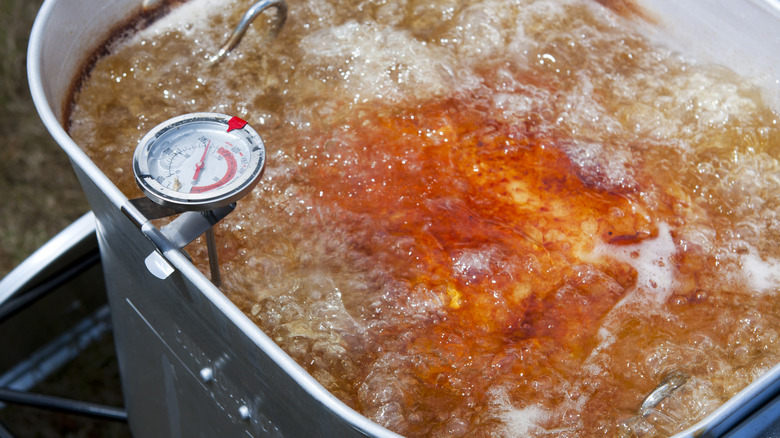The Best Seasoning For Splatter-Free Deep-Fried Turkey
You don't have to wait for Thanksgiving to enjoy the flavors and experience of deep-frying a turkey. While you may think to reserve cooking a whole bird for the holidays, turkey is a great lean, protein option for year-round occasions. Should you be able to find one in the grocery store outside of the holiday window, a whole turkey's size makes it ideal for larger gatherings, and deep-frying your turkey can rapidly produce tender, juicy turkey meat held together under crispy, golden-brown skin.
Cooking a whole bird in a fraction of the time it would take to roast or grill, deep-frying is a great cooking method to get outdoors and prepare a delicious meal for the whole family. However, there's certainly a right and wrong way to prepare turkey in this fashion. Deep-frying can be dangerous, and certain precautions must be taken to avoid a disaster. One lesser-known step for achieving a golden-brown bird without any splatter involves your seasonings. Using a dry brine during prep elevates the flavor and reduces the splash (and thus the potential for burns) when lowering your turkey into the oil.
Dry brine your bird before deep frying
Once a turkey is thawed, brining and seasoning is the next step in preparing your bird for a dip in the deep fryer. While there are two ways to brine a bird – wet and dry – use a dry brine to avoid splashing or splattering when exposed to hot oil. A wet brine, which consists of mostly water and salt, would be like pouring water onto a hot skillet coated in oil, and the excess liquid on your bird would result in oil popping and splashing all over the place.
While dry brine, also known as curing, is a dry mixture of salt and spices that absorbs directly into the skin of the turkey. If you're worried that the lack of water used in this method means a dry finished product, worry not. The salt and seasoning react with the skin of the turkey to draw out the moisture in the bird, but these juices are then reabsorbed. This means there is less liquid on the surface of your turkey to react with the hot oil, and you ends up with a deliciously tender bird that is teeming with flavor.
While precautions must be taken anytime you use a deep fryer, preparing your turkey in a dry brine dramatically reduces the risk of splashing while carefully lowering your turkey into the pot. Considering how much flavor a dry brine can add to your turkey, there's really no reason not to use this seasoning method.

